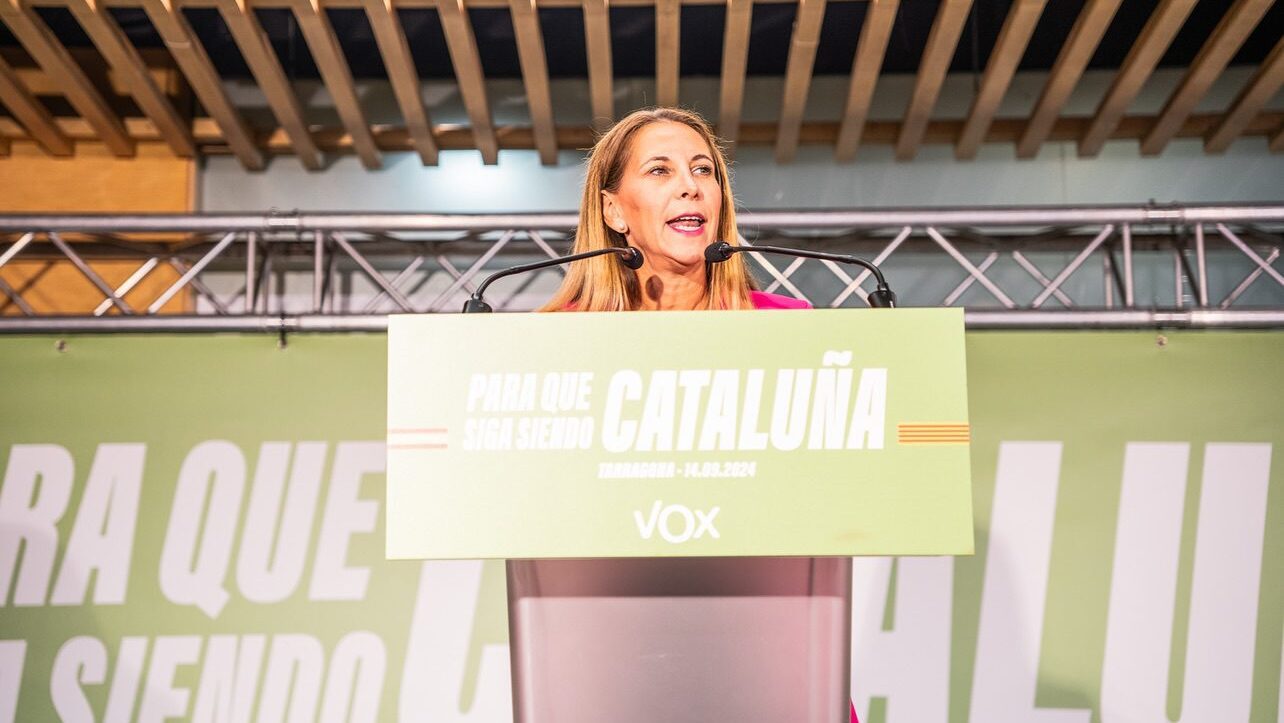
María García Fuster
Photo: Grupo Parlamentario VOX Cataluña on Facebook, 14 September 2024
VOX announced that it is proposing legislation to eliminate all low emission zones in the Spanish region of Catalonia and return all fines collected for violating the zones.
María García Fuster, an MP in the regional parliament, made the astounding announcement at a press conference on Tuesday.
She reiterated the party’s position that low-emission zones attack the right to free movement for working families, and “single out those people who cannot afford to buy new vehicles through a kind of climate ‘apartheid.’”
García called for the repeal of low-emission zone ordinances, the immediate return of what she described as “illegally collected” fines, and the removal of subsidies for municipalities enforcing such zones.
Barcelona, the regional capital, was the first Spanish city to implement low emission zones and regional law has required that all cities with 20,000 people or more also establish such areas by 2024. EU rules require that all cities over 50,000 people designate low emission zones. In Spain, since VOX entered the municipal governments of some 140 municipalities across the country in the 2023 elections, the party has been influential in easing the effects of low emissions zones on citizens.
At the press conference, García also spoke about the demonstration on Saturday in Barcelona calling for fair housing prices which gathered tens of thousands to the cause. She said that she understood the Catalans’ “disgust and anger” over the lack of housing. But, she said, “housing cannot be led by professional demonstrators,” adding that the protest organizers are “wolves in sheeps’ clothing” defending the same policies that have led to the current situation.
The BBC reports that the protest organizers called for rents to be immediately reduced by 50%, for indefinite rental contracts (most are annual), and for a moratorium on tourist rentals and “speculative” sales of apartment buildings. Some protestors called for a rent strike, a call that was launched in a similar demonstration in Madrid in October. Protests against mass tourism also took place in Barcelona over the summer.
Last March, rent control measures went into effect in Barcelona. The BBC reports that according to figures from the regional government, rents in Barcelona reached a historic high in the first quarter of 2024 and then fell by 5.2% in the second quarter but also that the rental housing stock was reduced as some owners took their properties off the residential housing market, perhaps turning them into tourist rentals.
García called for an end to the “intrusions of the State in the real estate market” and for instead changing land use laws to facilitate construction of new housing, reducing the regional personal income tax, and promoting public-private collaboration to build more social housing.
Spain lacks housing in larger cities and lags behind other EU states in its public housing stock.
Experts attribute this situation to the rise in housing costs, which has doubled in the last ten years in cities such as Barcelona and Madrid while salaries have stagnated. Spain has also seen a growing problem of renters simply ceasing to pay their landlords, often finding protection under Spanish laws that can make it difficult to evict non-paying renters.
